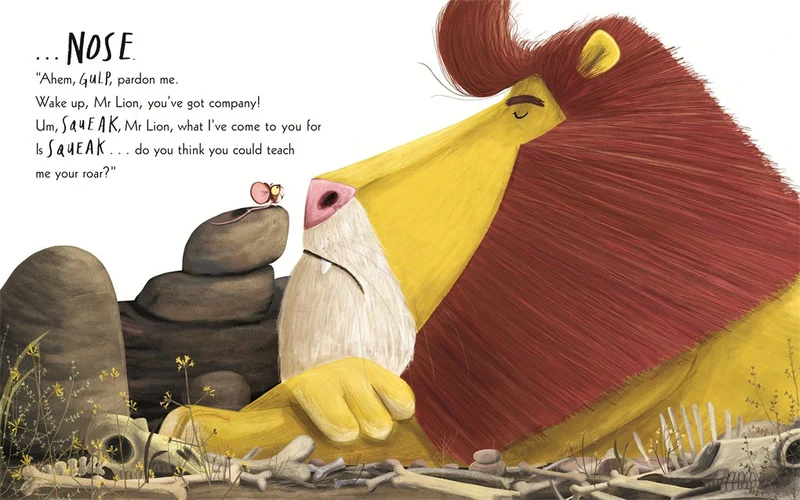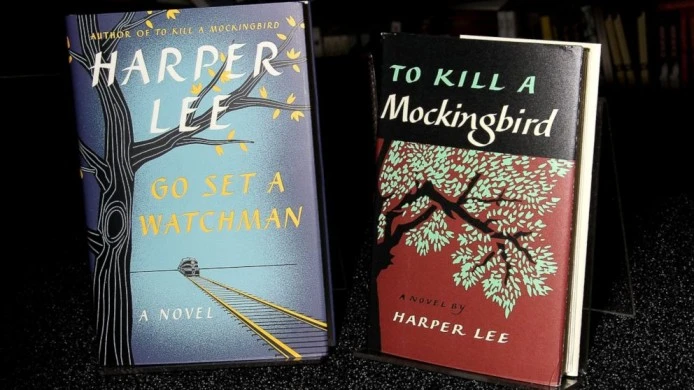Wandering in Strange Lands, by Morgan Jerkins: An Excerpt
In 1869 the Gullah Geechee people owned half of Beaufort County of South Carolina. Since then, they’ve lost fourteen million acres. The best example of the rapid marginalization of Gullah Geechee people is on Hilton Head Island, one of the most lucrative places in the South.
In 2018, the Conde Nast Traveler ranked Hilton Head Island as the best island resort area in the United States for the second year in a row, and for good reason. The island is full of world-class resorts, delectable cuisine, and sandy beaches, and it generally has idyllic weather. But beyond the optics of a wonderful vacation spot, there’s a grim side. Although Gullah Geechee people are spread out all across the island, their biggest concentration is in the north end. Hilton Head Island was once one large plantation. After the Civil War, freed black people bought land from the United States government and settled into what was the first self-governed town of formerly enslaved black people in the country: Mitchelville. Other pieces of land were sold to (white) speculators or previous plantation owners, who settled on the south end. In 1956, Charles Fraser, the son of a well-off family who made their fortune in timber, started the “modern” era in Hilton Head by creating the first resort, Sea Pines Plantation, on the south end, constructing a bridge to connect to the mainland, and bringing air-conditioning to the island. But over time, developers wanted to expand to the north, as well, and were ultimately successful. The lack of legal protection for those who had heirs property, the rising land taxes, and the exodus of African Americans leaving the South in general as a part of the Great Migration, all allowed Fraser to succeed in converting most of Hilton Head into a prime resort community.
[ Return to the review of “Wandering in Strange Lands.” ]
Over 80 percent of “early black landowners” from the post– Civil War period and later did not have wills or clear titles. These landowners simply passed down their acres to their descendants or relatives as what is called heirs property. But families who have heirs property cannot get mortgages, do home repairs, apply for state or federal aid, get conservation funding, or take out loans available through the US Department of Agriculture. Heirs property is one of the biggest issues when it comes to black land preservation and cultural heritage on Hilton Head Island.
I perused the internet to find Hilton Head locals who were outspoken about the effects of business expansion into predominantly Gullah Geechee communities, and found Taiwan Scott. Coincidentally, Taiwan—or Tai, for short—was born in New Jersey like me. But unlike me, Tai has traveled regularly to his grandmother’s birthplace in Hilton Head and decided as an adult to move there to help preserve Gullah Geechee heritage. Unlike any other person I’d met from the Lowcountry, Scott was a real estate agent and therefore was willing to divulge his personal and professional stakes in Hilton Head. At the time that I was scheduled to meet him, Scott was in the midst of an ongoing battle with the town to run a business on his own property, and he believed the local media was not adequately covering the story.
I drove away from Savannah via I-95 North and then 278 through Jasper County and Bluffton to Hilton Head, and to this day, it is one of the most beautiful drives I’ve ever been on. But it was in Hilton Head where I soon learned how beautiful landscapes masked black carnage that was simplified and mocked at every turn. I saw the word plantation so much that I was starting to get a headache: Plantation Cafe & Grill, Plantation Cafe & Deli, Plantation Shopping Center, Paper & Party Plantation, Plantation Drive, Plantation Road, Plantation Club, Plantation Animal Hospital, Plantation Interiors, Plantation Cabinetry, Plantation Station Inc. . . . With every road I passed, there was another indication of a perverse symmetry between leisure and slavery.
On the island’s north end, I met Taiwan Scott on his property at 15 Marshland Road. Tai has invested time poring over archaeological studies on the island to match the locations of praise houses and cemeteries to new buildings and developments. He was stunned that anyone got clearance to construct, because these places hold such cultural and spiritual significance.
Tai’s plan was to have a food-truck-style restaurant and a shop where fruit, vegetables, seafood, jewelry, and sweetgrass baskets would be sold. The food truck and kitchen were already DHEC (South Carolina Department of Health and Environmental Control) approved. Initially, he was told by the local government that they did not want food trucks on the island, but they wanted to see his development concept. His initial development concept would have cost around $50,000. After the town government’s less-than-enthusiastic response to his plan, the concept escalated to nearly twice that amount because he was told that he was in a flood area and everything had to be elevated. He would also need to include a wrap-around deck. With the comments from the town government in hand, Tai began to read their rules and regulations book, and found a section that would allow his food truck without any of the flood-elevation requirements.
After sitting down with local officials, he was given the OK to proceed. During the design-review process, he was told that his building was too orange, despite the color being a cedar natural tone with a transparent stain. On a trip around town, he spotted a building within Shelter Cove Harbor, a newly developed upscale waterfront community, with bright orange awnings over the door and windows. Afterward, Tai consulted his white next-door neighbor, who owns a successful honey business. This neighbor showed up to a town meeting and went on record supporting Tai and his business plan.
[ Return to the review of “Wandering in Strange Lands.” ]
I wondered why Scott didn’t know what happened in the town meeting; these kinds of meetings usually have someone recording what happens. “They didn’t have minutes?”
“No minutes. I did a freedom-of-information request. They said they weren’t obligated to take any minutes to this meeting . . . because it wasn’t an official public meeting.”
“Oh, OK. So once it was discussed, it wasn’t open to the public.” “They had a closed door meeting . . .”
“. . . that they didn’t invite you to.” “. . . about my establishment.”
What has happened to Tai and his business has caused a shock wave among the native islanders, since Tai spread the word about what’s going on. Some elders have encouraged him to stop pressing the local government to make things right. Others’ hopes are dashed for any economic mobility.
His persistence has come with a cost. He fears for his wife and children. In 2017, a white pickup truck often circled around his home. Banana trees that grew on his property were dug up, and the security camera on his Marshland lot was smashed.
Ideally, Scott would like Gullah people to keep their heirs property but if they cannot and are forced to sell, he wants them to get the best offer available. Hilton Head is continuing to develop, and therefore the property taxes are going to steadily rise. He said to me, “I had one client—seventeen thousand dollars a year in taxes. I mean how can they afford to keep that? So they’re forced to sell it.”
To give me a more well-rounded sense of this divided place, Tai took me on a tour around the island. Within a half hour or so, I was able to distinguish between Gullah land, with its mobile park homes and weeds growing wildly on the lawns, and the plantations—or gated communities—where a pass is required for entry and we could only see an entrance sign with a long trail to the security booth behind it. In 2016, 77 percent of the Hilton Head population was white and under 7 percent was black. Over 10 percent of the population was in poverty, but of those in poverty, 30.6 percent were black, whereas only 5.4 percent were white.
In the 1860s, there were twenty-four plantations on Hilton Head Island. The rebranding of plantations as gated communities appeals to the white imagination. An adjunct professor of anthropology at the University of Tennessee–Knoxville, Melissa Hargrove wrote in her PhD dissertation on this spatial segregation. “For the Gullah, this practice has translated into a reinvention of history that denies the collective memories intimately linking them to these recently appropriated spaces.”
One of these collective memories is of the way the Gullah people honor the dead. Alex Brown, chairman of the Hilton Head Town Planning Commission, whose family has been in Hilton Head for eight generations, knows of Gullah burial grounds within three plantations: Hilton Head, Sea Pines, and Indigo Run. About five years ago, one of Brown’s closest friends passed away and was set to be buried in Indigo Run. Because that friend was a motorcyclist, Brown and his social circle decided to ride motorcycles to the funeral in his honor. However, the bikes weren’t allowed. Brown isn’t sure whether this restriction was discriminatory, but demonstrates that the gated communities make rules independent of the town.
Taiwan Scott’s ancestors and countless others are buried in Sea Pines Plantation where South Carolina’s annual RBC Heritage PGA tournament is held, a renowned event that Taiwan aches to see. He’s even been a part of protest during this event to call attention to Gullah displacement. With regard to preservation, the state of South Carolina, SC Code of Laws 27–43–210 states:
This law grants family members and descendants limited access to graves on private property. It requires owners of cemeteries on private property to provide reasonable access to family members and descendants of those buried in the cemetery. The law requires the person wanting access to the cemetery to submit a written request to the property owner.
Descendants of someone who’s buried in a cemetery on private property must rely on the goodwill of a property owner and petition said person, whether they’re natives or visitors, to pay respects to their own people. Furthermore, one may have to pay a fee, as is the case with Sea Pines Plantation. There is a three-dollar fee, like the entrance fee to a state park, for locals to visit their deceased relatives. That alongside having to explain themselves to security guards makes it hard for the Gullah people to maintain their connection to the land.
Tish Lynn is director of communications and outreach for the Center for Heirs Property Preservation, a Charleston-based non-profit organization working to help heirs retain their land. In a phone interview, she said, “All of these developments that have become gated communities on both Hilton Head and along the coast of South Carolina have cut them [the Gullah Geechee] off from their traditions, their culture, and their way of life. It’s more than losing land. It’s heritage and culture as we know it. It’s the loss of access to water as a means of transportation, to fish and oyster, and make a sustainable living.”
I thought of my family and how suburbs were supposed to be the dream. If we could have been living in a gated community, that would have been even better. But now I was seeing that the planning of gated communities, especially in the South, was at the expense of black people, their ancestors’ bodies, and their customs. I, the Northerner, was face-to-face with a man who lived in the North but came back to the South to fight for his people. Both of us were effects of migration. Arguably, if more Gullah Geechee people had stayed in Hilton Head, Tai would not have faced so many challenges with his business venture, because there would have been more of them to claim their stakes in the land. Arguably, if my grandfather and his father had kept returning to Georgia with their children after moving up north, then maybe I would’ve never felt that my connection to the South had been severed. But this day felt like a meeting in the middle. No matter where we are along the coast, we are a vulnerable people, prone to cultural erasure and amnesia.
[ Return to the review of “Wandering in Strange Lands.” ]




